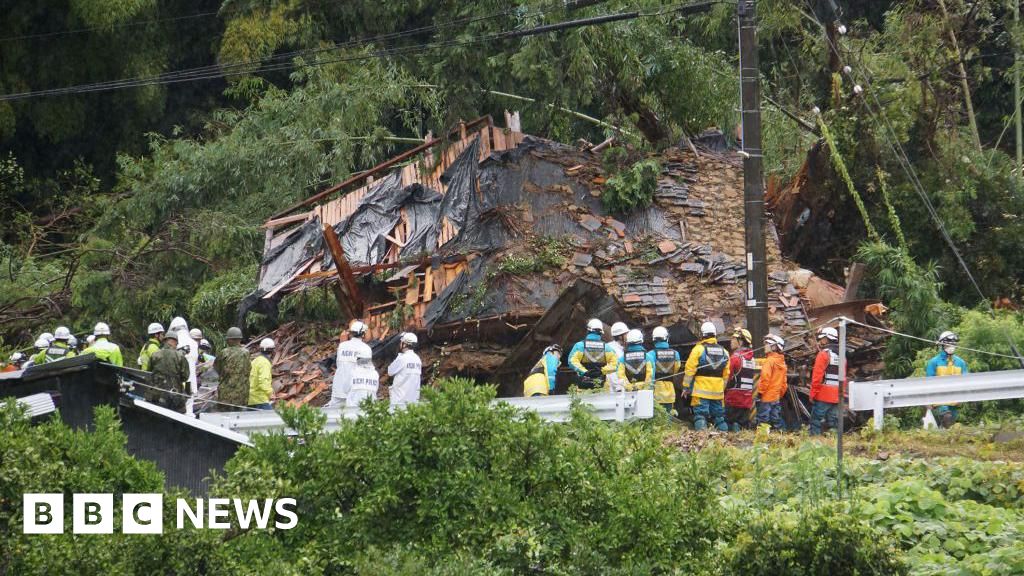A powerful typhoon has hit Japan’s southern island of Kyushu, home to 12.5 million people, as authorities warn of landslides, flooding and large-scale damage.
Shanshan made landfall near Satsumasendai city in Kagoshima prefecture at around 08:00 local time (23:00 GMT), the Japan Meteorological Agency (JMA) said.
The agency added that storms and high winds of up to 252 km/h (157mph) were reported on the island. As much as 600mm of rain over 24 hours has been forecast in some areas of Kyushu.
Three people remain missing in Gamagori, a city in central Aichi prefecture, after a wall of mud, rock and other debris swept away a house with a family of five inside late on Tuesday.
“The landslide hit a house where five family members were living – a couple in their 70s, two women in their 40s and a man in his 30s,” a Gamagori official told the AFP news agency.
After all-night recovery efforts, the two women in their 40s were rescued, but the couple and the man in his 30s remain unaccounted for, the official said.
Carmaking giant Toyota, meanwhile, has shut down all 14 of its plants until Thursday morning, citing the safety of its employees as well as potential parts shortages caused by the storm.
Hundreds of flights to and from Nagoya Chubu and Osaka Kansai airports have been cancelled. Some high-speed train services have also been impacted.
Earlier this week, local governments issued evacuation advisories to 810,000 people in the central Shizuoka prefecture on Japan’s main island of Honshu.
A further 56,000 were told to leave their home in Kagoshima on Kyushu, the fire and disaster management agency said.
Shanshan comes in the wake of Typhoon Ampil earlier this month, which caused only minor injuries and damage but still disrupted hundreds of flights and trains.
Before that, northern parts of Japan saw record rainfall when Tropical Storm Maria hit Honshu island.
Typhoons in the region have been forming closer to coastlines, intensifying more rapidly and lasting longer over land due to climate change, according to a study released last month.

